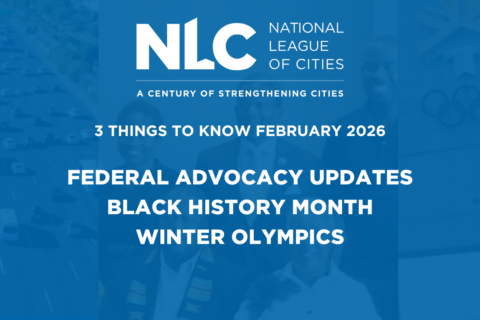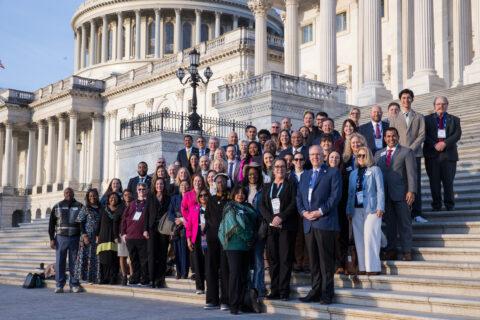Authored by Blaine Griffin, Council President, City of Cleveland, OH and Chair of NLC’s 2025 Finance, Administration and Intergovernmental Relations (FAIR) Committee
For decades, cities, towns and villages across America used a process called advance refunding to refinance bonds originally issued to build roads, bridges, water systems and other vital infrastructure. Just like a homeowner refinancing a mortgage, local governments could lower their interest rates and save money — money that was reinvested directly into their communities.
But in 2017, Congress eliminated advance refunding as part of a federal tax overhaul. The goal was to pay for short-term tax cuts, but at the expense of long-term fiscal stability for local governments. The result? Cities were left with fewer tools to manage debt and higher costs to maintain essential services.
Between 2007 and 2017, local governments used advance refunding to save over $18 billion (PDF). In between that time period, the City of Cleveland executed advanced refundings for General Fund related issuances that provided $18,100,000 in present value savings. These were substantial savings that helped the city invest in infrastructure while also allowing us to recover from the Great Recession and bolster the local economy. This is not a frivolous or overused tool. It’s a strategic, precisely timed financial decision that helps communities operate efficiently and prepare for the future.
Now, in a period of high interest rates, communities are being penalized for investing in our future. Without access to advance refunding, cities must pay more to borrow, which means less money for roads, housing, broadband and other essential investments. It’s a lose-lose: higher costs for taxpayers, fewer resources for local priorities.
Restoring tax-exempt advance refunding would allow local leaders to refinance debt when interest rates drop — not just within a narrow 90-day window — and give them the flexibility they need to serve residents responsibly.
Cities are already being asked to do more with less. Inflation, supply chain issues and rising labor costs are straining local budgets. The federal government should be a partner in responsible governance, not a barrier.
This is a bipartisan issue because it’s a common-sense issue. Legislation to restore advance refunding has been introduced in a bipartisan manner every Congress since 2017.
Tell your representatives to support H.R. 1255/ S. 1481 to reinstate tax-exempt advance refunding. It’s time to give cities, towns and villages back the tools we need to govern responsibly.
Send a Letter
Join the National League of Cities in calling on Congress to reinstate advance refunding. Send a letter to explain why this matters to your community.








